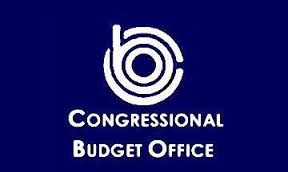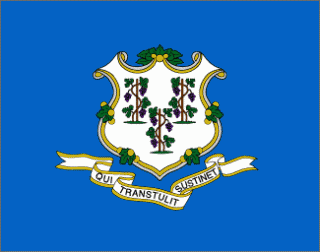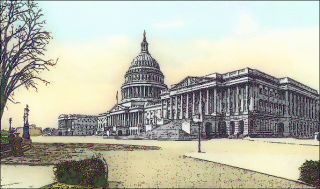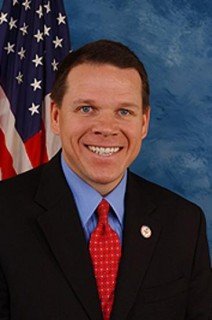VetLikeMe – 4/18/2014
“Improving Opportunities for Service-Disabled Veteran-Owned Small Businesses Act of 2013″- HR 2882

On April 14, 2014, the Congressional Budget Office (CBO) released a cost estimate for the enactment of HR 2882, “Improving Opportunities for Service-Disabled Veteran-Owned Small Businesses Act of 2013.”
Introduced on July 31, 2013 by Mike Coffman
(R-CO), HR 2882 shifts responsibility for SDVOSB verification from the Veterans Administration to the Small Business Administration. This proposed legislation created mixed reaction within in the SDVOSB community, national legislators, agency officials and veteran business advocates. In edition 4.6, VetLikeMe, we featured extensive coverage of this bill, including editorials by respected members of the SDVOSB community, an in-depth interview with Rep. Mike Coffman (R-CO), sponsor of the bill, and an administrative summary tracking the measure through the legislative process.
In this issue of VLM Weekly, our coverage includes:
- – Legislative status provided by GovTrack;
- – The Congressional Budget Office Report (April 14);
- – HR 2882 pro and con editorials (from VLM Vol. 4 No. 6);
- – Excerpts of VLM interview with Rep. Coffman (from VLM Vol. 4 No. 6);
- – Editorial on HR 2882 (from VLM Vol. 4 No. 6);
- – A resolution from the 2013 NINETY-FIFTH NATIONAL CONVENTION OF THE AMERICAN LEGION (the resolution is not specifically in support of HR 2882).
Questions were posed to SBA and VA. Federal agencies have policies against commenting on pending legislation.
——————————————————————————–
“Improving Opportunities for Service-Disabled Veteran-Owned Small Businesses Act of 2013.” (HR 2882)
Sponsor Mike Coffman (R-CO) When introduced, the bill had six cosponsors, now HR 2882 has nine cosponsors:
- Connolly, Gerald [D-VA11]
- Flores, Bill [R-TX17]
- Graves, Sam [R-MO6]
- Hanna, Richard [R-NY22]
- Miller, Jeff [R-FL1]
- Roe, David “Phil” [R-TN1]
- (joined Aug 02, 2013)
- Murphy, Patrick [D-FL18]
- (joined Mar 04, 2014)
- Herrera Beutler, Jaime [R-WA3]
- (joined Mar 05, 2014)
Committees
House Small Business – requested CBO report March 5, 2014
House Veterans’ Affairs
↪ Economic Opportunity – pending
——————————————————————–
Congressional Budget Office Cost Estimate
H.R. 2882, Improving Opportunities for Service-Disabled Veteran-Owned Small Businesses Act of 2013
(April 14, 2014) – As ordered reported by the House Committee on Small Business on March 5, 2014
As ordered reported by the House Committee on Small Business on March 5, 2014
Under a program administered by the Department of Veterans Affairs (VA), small businesses that are owned by service-disabled veterans are eligible for special consideration in the process of awarding federal contracts. The VA maintains a database of businesses and owners eligible to participate in that preference program; H.R. 2882 would transfer authority to maintain that database to the Small Business Administration (SBA). The bill also would direct VA to reimburse SBA for its costs to operate the program, which would include not only database development and management activities, but also efforts to verify the small businesses’ eligibility to participate in the program and to hear appeals of eligibility determinations.
CBO estimates that enacting H.R. 2882 would affect direct spending; therefore, pay-as-you-go procedures apply. CBO estimates, however, that those effects would not be significant. The VA collects fees from agencies that participate in joint contracting opportunities with VA; the agency is authorized to spend those fees without further appropriation action to pay for, among other things, the database and verification system for small businesses.
Based on information from VA and SBA, CBO expects that SBA will spend less to operate the certification program each year than VA because it can use some systems already in place that provide similar certification services for other preference programs such as the HUBZone program. CBO estimates that SBA would spend, on average, about $5 million per year less than VA would to administer the verification system. CBO expects that the savings realized by VA would be spent on other authorized activities; therefore, the effect on direct spending would not be significant. CBO assumes that amounts transferred from VA under the bill would be recorded as offsets to discretionary spending by SBA; therefore, we estimate that implementing H.R. 2882 would have no significant net effect on spending subject to appropriation.
H.R. 2882 contains no intergovernmental or private-sector mandates as defined in the Unfunded Mandates Reform Act and would not affect the budgets of state, local, or tribal governments.
————————————————————————————-
In support of H.R. 2882
By Marc Goldschmitt
The bill fixes several key problems and eliminates double standards in statute and regulation:
1. It aligns SBA and VA statutory definitions of a veteran;
2. It updates the Small Business Regs to provide for continuation of the business in the event of the death of the SDV from service connected disabilities or if the vet is 100% disabled;
3. It provides for an appeals process with experienced administrative law judges and decades of case law;
4. Assures that an SDVOSB or VOSB at VA is an SDVOSB or VOSB at SBA and vice versa.
I think that we could all agree that these are significant and long overdue changes.
The other part of the bill, which is the only place I’ve heard any pushback, has to do with where the verification process is managed and executed. This is the implementation and interpretation aspects of verification. In the past these were severely broken and caused irreparable harm to a number of businesses.
From a veteran perspective, the implementation today is significantly better:
1. Timeframes from submission to decision are significantly reduced;
2. Much more information is publicly available about the documentation that CVE requests and what they may be looking for;
3. Verification Assistance Partners and Counselors have been trained and are able to assist applicants in preparing and submitting documentation as well as interpreting requests for additional information;
4. CVE has implemented a pre-determination step.
The remaining issue of interpretation is one that can be highly emotional. By this I mean what CVE refers to as “Business Models.” These are the areas where there seems to be strong consensus that change is required, but less agreement on what things need to be changed and how. It also impacts the type and volume of documentation that a veteran must submit. To me, the debate should focus on how important are these changes to the veteran community and how soon must be implemented. Admittedly, these “business model issues” do not immediately affect most of the smaller businesses and startups. But, they do impact those businesses that are growth oriented and seeking an infusion of capital and expertise to support and sustain that growth. So, the first question is “How important is change to building and sustaining a VOSB and SDVOSB industrial base?”
Wayne, you make the point that SBA is rudderless and may change home ports. But the leaders, workers and process for doing ownership and control (a subset of HUBZone, 8a and status protests) are in place and would most likely continue if SBA moved to Commerce. Since the infrastructure, policies and procedures are in-place at SBA to support document collection and review, the second question would be “How disruptive in the short term and long term would a move to SBA be?”
You make the point that “the Executive tells VA leadership to do it this way and or that way or else…it should get better or heads should roll at VA.” You also state that “VA arrogance and refusal to comply with Congressional and GAO recommendations/direction. This is the crux of the situation and this is what requires atten-tion.” So, the third question is “How likely is it that VA will implement necessary changes?”
Should the verification program move to SBA, an overriding historical concern, and a critical fourth question is “Where will the SDVOSB program fall in SBA’s priorities?”
Rather than bash HR 2882, which fixes problems that have plagued the verification program from its inception, let’s accept the critical parts that we agree need to be done and focus on the impact of the remaining implementation and interpretation challenges in the con-text of how we can recommend the path that best supports the community.
—————————————————————————— 
Counter View: H.R. 2882
By Wayne Gatewood
Myself and a number of other SDVOSBs are against this Bill. We are NOT just another small business category…we ar e Veterans.
SBA does not have any leadership at present with Karen Mills on the way out and Marie Johns already gone, and there are considerations of having its mission (SBA) fall under Commerce Department…what chaos! There is also the issue of disability sensitivities regarding our individual cases that should not be shared with SBA in anyway. Finally, SBA has had its problems as well, and we will be starting from scratch!
Let us remember something very pertinent to this matter …..SDVOSB/VOSB verification was not and is not a universal small business requirement…it pertains ONLY for SDVOSB and VOSB set-asides at VA under the failing Vets First Program and PL 108-183. No doubt we have been hurt by the CVE verification failures (me person-ally for over a year), but I am hanging my hat on CVE and VA. If the Executive Branch gets involved and sup-ports the Congress and its take on CVE, and IF the Executive Branch tells VA leadership to do it this way and or that way or else…it should get better or heads should roll at VA.
All too often the Congress has told VA it must do this and it must do that…VA’s leadership has been arrogant and combative and it is their refusals to comply that must be addressed. I am amazed at this Government; we have agencies that refuse to follow the Laws so we let them get away with it….no way to run the Government. Look at the 13 or so Aldevra Protests relative to Vets First at VA that were upheld by GAO; after all of these successful Pro-tests by SDVOSB Aldevra, VA still refused to comply and has stood solidly on their interpretation of PL 108-183 in the face of Congressional and GAO recommendations and concerns to interpret them otherwise. The VA Verification Program is strictly a VA requirement…get it fixed and make those responsible for the failures to be held accountable…that simple. Fact is, some progress is being made…we just need to get them where they need to be.
I am concerned that if we get this thing over to SBA, it will not be long until the other (non Vet small business groups) start demanding that there be verification for SDVOSBs for all agencies; there are those that are presently complaining that we self certify and they cannot. Fact is, many SDVOSBs do not want to be verified by VA because they are not looking for work at VA and they don’t want the hassle. If we would have to go to universal SDVOSB verification…think of the impact on non-verified SDVOSBs, and the expense to the Government.
Certainly this part of my argument is hypothetical but I believe it will happen….just because we have taken our attention off the real issue…VA arrogance and refusal to comply with Congressional and GAO recommendations/direction. This is the crux of the situation and this is what requires attention. With more than 24 years in business and a verified SDVOSB, I was never consulted by anyone and asked my opinion regarding HR 2882, and neither were any of the SDVOSBs that I have spoken to. I am wondering how many SDVOSBs spoke with Congressional Staffers and such so their views could be known be-fore this Bill was drafted?
No doubt emotions regarding CVE at VA are raw but we need to think this through very carefully.
Under PL 106-50 a group of Vets were to form a Council at SBA and have all kinds of powers, power to call in agency heads, power to alert the White House to failures by those agencies not making their 3%, etc. etc., etc. Fact is, this Council (if that is what it is referred to) has NEVER been able to exercise the flexibility and the authority vested in it under the Law. The SBA never allowed the Council to fully function and thus we were not able to inform the White House of Agency failures and such. As I have said, we are Veterans and we need to clean up the lingering issues at VA CVE and leave the Program there where it belongs since it is in fact a VA matter for set-asides at VA only. Going to SBA I fear, will result over time, in universal verification for SDVOSBs under amended legislation. Fact is, many agencies outside of VA, if not all, want to see that a Vet is verified and are often hesitant to deal with those that are not VA verified…when in fact self verification is the Law for them.
——————————————————————————————
Excerpt from VetLikeMe Interview with U.S. Representative Mike Coffman (R-CO), sponsor, HR 2882 (Vol. 4, No. 6, August-September 2013):
“VetLikeMe (VLM): What legislation or government performance reports brought this matter to your attention?
This is an issue I’ve been working on for several years – we owe it to those who served to make sure that only legitimate service-disabled veteran-owned small businesses (SDVOSBs) or veteran-owned small businesses (VOSBs) are benefiting from the programs created to honor their service. …”
VLM: Why do you think SBA can do a better job of certifying SDVOSB than the VA?
”VAA and SBA each have their areas of expertise, and the Improving Opportunities for Service-Disabled Veteran-Owned Small Businesses Act of 2013 will have each agency do what it does best. VA is best suited at determining whether an individual is a service-disabled veteran or a veteran, so under the new legislation, it remains in charge of that process.
… While VA’s currently states that it follows SBA’s guidance on size, ownership and control, the March 2013 hearing demonstrated that there is a great deal of disparity and a lack of transparency when VA applies these rules. Therefore, this legislation puts issues regarding size, ownership, and control back with the agency best able to interpret them – the SBA.
… VLM: As written, H.R. 2882, applies only to VA contracts. Will this bill be implemented throughout the government in the future?
Before we can move all service-disabled veterans to one system, we need to build that system. H.R. 2882 should provide a framework that can be expanded in the future to cover all verifications. However, it has one significant advantage over the current split process. Currently, a firm can be rejected by VA and then turn around and self-certify for a contract at any other agency. Under the proposed legislation, this would no longer be possible.
VLM: What will happen to SDVOSBs/VOSBs caught in the transition from VA to SBA? Will they be able to bid on VA contracts?
In drafting H.R. 2882, my cosponsors and I were careful to create transition time, and give SBA, VA and OMB the ability to negotiate how that transition would occur so that it will not displace current SDVOSB and VOSB firms.
VLM: Verification is only one component of the “Vets First” law; does Congress have any plans to address the rest of the law (109-461) that requires VA to consider SDVOSBs BEFORE other businesses?
I want to be clear – this legislation doesn’t change the Vets First preference at VA, instead it works to make sure that all qualified firms are able to benefit from the Vets First preference, but that rent-a-vets and other fraudulent firms are not able to take opportunities they haven’t earned.
Thank you, Congressman, for spending time with VetLikeMe.
———————————————————————————————–
Editorial
Drastic House Bill Asks VA to Hand Over SDVOSB Verification to SBA
by Sarah Schauerte
On August 1, House Small Business Committee Member Rep. Mike Coffman (R-CO) introduced the “Improving Opportunity for Service Disabled Veteran-Owned Small Business Act of 2013″ (HR 2882). The main thrust of the bill is a show-stopper: it requires the Department of Veterans Affairs (VA) to relinquish control over the verification of SDVOSBs to the Small Business Administration (SBA).
As veterans know, the SBA and the VA operate separate procurement programs for SDVOSBs. These two pro-grams are different in several key respects, including the following that would be impacted by the bill:
Verification/Certification Procedures – Under the SBA’s program, veteran business owners self-certify their eligibility to participate in SDVOSB set-asides issued by all procuring agencies other than the VA. Under the VA’s Veterans First Contracting Program, the Center for Veterans Enterprise (CVE) verifies applicants as eligible SDVOSBs or veteran-owned small businesses (VOSBs) in its VetBiz Vendor Information Pages (VIP). This includes submission by veteran businesses of key business documents to show veteran ownership and control. Pursuant to the terms of Rep. Coffman’s bill, the SBA would verify applicants as eligible for the Veterans First Program. That’s right. In seeking verification and re-verification, veteran business owners would no longer have to deal with the VA.
Appellate Procedures – Eligibility issues and protests relating to the SBA’s SDVOSB Program are heard by the SBA’s Office of Hearings and Appeals (OHA), while eligibility issues and protests relating to the Veterans First Program are heard by the VA. Under Rep. Coffman’s new bill, denied verifications or SDVOSB bid protests (based on eligibility) would be also heard by SBA OHA.
Since the inception of the VA’s VetBiz VIP Verification Program, it has encountered harsh criticism due to its extremely high applicant rejection rate (currently 30%, which represents a vast improvement), long wait times, and technical glitches.
Despite this, both the VA and the SBA have expressed the intention that the VA’s verification program ultimately be applied government-wide. Further, the VA recently sought comments for proposed rulemaking to amend 38 CFR Part 74 and to improve the VetBiz process generally. With these developments, along with the time and money invested in VetBiz, it would seem that the chance of this bill becoming law is small.
VetLikeMe Vol . 4 No. 6
—————————————————————————————-
Excerpt from the
NINETY-FIFTH NATIONAL CONVENTION
OF
THE AMERICAN LEGION
Houston, Texas
August 27, 28, 29, 2013
Resolution No. 73: Support Verification Improvements for Veterans’ Business within the Department of Veterans Affairs and the Department of Defense
Origin: Convention Committee on Economic (Employment and Veterans Preference)
Submitted by: Convention Committee on Economic (Employment and Veterans Preference) August 27, 28, 29, 2013
“…
That The American Legion recommend the streamlining and improvement of the Department of Veterans Affairs (VA) verification of Service-Disabled Veteran-Owned Businesses (SDVOSBs) and Veteran-Owned Small Businesses (VOSBs) interested in participating in the Agency’s Veterans First Contracting Program; and, be it further
RESOLVED, That The American Legion endorses VA’s efforts to ensure that contracts awarded pursuant to the Veterans First Program are awarded to companies that truly are entitled to receive these contracting benefits; and, be it further
RESOLVED, That The American Legion endorses efforts to create a formal appeals process for contesting an initial denial decision; and, be it further
RESOLVED, That The American Legion supports legislation that calls for the Department of Veterans Affairs and the Small Business Administration to share responsibilities for the verification of Service-Disabled Veteran-Owned Businesses and Veteran-Owned Small Businesses; and this responsibility should be divided accordingly to each agency’s expertise and record of past performance (emphasis editor); and, be it finally
RESOLVED, That The American Legion endorses the implementation of a program comparable to Veterans First Contracting Program within the Department of Defense.”
Courtesy:
Louis J. Celli Jr.
Director, National Legislative Division
American Legion
————————————————————————————
VetLikeMe Weekly, 4/18/2014
—————————————————-
—————————————————
We’ll Be Their “Wingman”
by Maria Contreras-Sweet, Administrator, Small Business Administration
VetLikeMe Weekly
Encouraging first steps taken by the new SBA Administrator, Maria Contreras-Sweet
We’ll Be Their “Wingman”
Are you a self-starter? Do you have a general-management skill set? Are you used to constantly changing roles and responsibilities? Are you disciplined and focused? Are you risk-tolerant and able to manage stress?
These are the threshold questions that SBA counselors ask every day to help prospective entrepreneurs assess if they have what it takes to be a successful small business owner. And when those questions are put to veterans of the U.S. armed forces, they often get “yes” replies.
The military has a track record of producing outstanding leaders, which helps explain why nearly 1 in 10 U.S. entrepreneurs are veterans. Statistics show that vets are 45 percent more likely to be their own boss than their non-veteran counterparts. Veterans own 2.5 million American businesses that employ more than 5.8 million people. These companies generate more than $1 trillion in sales a year. (That’s a staggering sum. You could pay the salaries of 57 million Army privates with a trillion dollars.)
Our veterans have worked hard and made so many sacrifices for our country. They have put themselves in harm’s way and often must leave their families behind to keep America safe. At the SBA, we have a solemn duty to work as hard for them as they’ve worked for us. No one deserves to live the American Dream more than those who’ve put on a uniform and fought to defend it.
On Tuesday, I attended the “Boots to Business” program at the Pentagon. In a small classroom of students, primarily service members transitioning out of the Air Force, the SBA put on a two-day “Introduction to Entrepreneurship” course that focused on how to translate military experience into succeeding as a small business owner. I was inspired by the power and diversity of these heroes’ dreams: aspirations to open a medical practice, a flight services engineering firm, a cybersecurity company, a photography business, a veterinarian practice, and a barbecue restaurant, to name just a few.
This year, the SBA will train 15,000 transitioning service members and introduce them to the basics of business ownership. After the two-day intro class, SBA offers an intensive eight-week course to help these leaders evaluate their business concept and develop viable business plans. SBA then continues to provide guidance through our resource partner network in communities across America by offering one-on-one assistance to assess and mitigate risk, comply with regulations, access financing and create new jobs.
I’ve started three businesses, and I know it can often seem like a lonely road. But there are resources available; you just need to know where to look. In the military, you get used to being part of a team … and not just any team, but the finest team in the world: the United States Armed Forces. I promised the members of that class – and I extend this promise to all veterans – that if they pursue their dreams of opening a new business, they won’t be alone. The SBA will be right by their side, offering counseling, contracting opportunities, and access to capital.
The SBA will be their wingman, fighting for them and with them, every step of the way.
SDVOSB News for April 18, 2014
April 17, 2014 Filed Under: All Articles, News, VetLikeMe Weekly
Nation’s First Disabled Veteran-owned Craft Distillery, Hotel Tango Whiskey, to Open August 2014 in Indy
Indianapolis (PRWEB) April 08, 2014

Hotel Tango Whiskey, the first disabled veteran-owned distillery in the country, has signed a lease at 702 Virginia Avenue in the popular Fountain Square district.
Producing whiskey, gin, moonshine and vodka on the 3,500 square foot premises, the company will also have a tasting room and retail area for the general public.
Founded in 2013 by Travis Barnes, the name Hotel Tango Whiskey was inspired by Barnes’ military service. Using the military phonetic alphabet, the initials represent his wife, Hilary, himself and, of course, whiskey.
[Read more]
———————————————————————————————
Small Business Start Up
Checklist: 5 Crucial Steps When Starting A Business
Every new business needs a small business start up checklist. This list will not only keep your business running smoothly, it will also help you have more organization in your company. As an entrepreneur, you might want to do things your way, but it can’t hurt to learn a thing or two from the people who have already gone through the path you’re just about to embark on. Below is the small business start up checklist compiled from different businesses. SOURCE: U.S. Veterans Magazine
[Read more]
——————————————————————————————-
Small Business Legislative & Regulatory Update
by Devon Hewitt
Proposed Changes to the FAR Regarding 8(a) Program Contracts
DoD, GSA and NASA have proposed amending the FAR to provide guidance on an 8(a)’s ability to continue to accept orders after its departure from the program and provisions related to 8(a) protests. The rules were issued, in part, to implement changes made by the SBA in previously published final rule. See 76 FR 8221 (Feb. 11, 2011).
The proposed rule provides that 8(a) contractors may continue to accept individual orders under multiple award contracts after they exit the 8(a) program or are no longer small under the relevant NAICS code. The rule would apply to any multiple award contract that was previously set-aside for 8(a) contractors, including GSA Schedule contracts, Government-wide
[Read more]
———————————————————————————————
Optimizing Your Website for Local Searches
Technology is transforming how modern entrepreneurs stay connected to their business, their team and their industry. In this series, learn more about the cutting edge tools and thinking allowing innovators to stay ahead of the trends.
—————————————————————————————–
The Formula Startups Use to Make Billions (Infographic)
From thousands of miles away, Silicon Valley can feel like a magic box: normal people enter and out pop billionaires. But the startup ecosystem is much like the Wizard of Oz, where, when you pull back the green curtain, there stands a man.
There’s actually a fairly systematic process behind the formation, growth and financial success of many startups. Which is not to say that it is a fool’s errand to launch a successful startup and grow it into a billion-dollar company, but only to say that it has been done, and there is a worn path and a mature ecosystem surrounding this routine.
[Large image]
• »
State Activity for Week Ending April 18, 2014
April 18, 2014 Filed Under: All Articles, News, State News, VetLikeMe Weekly
Boost for veteran-owned businesses
8:32 am April 10th, 2014 By Pat Jenkins
The Dispatch
A bill authored by south Pierce County’s newest state legislator has been signed into law, giving a potential source of customers to businesses owned by military veterans.
Rep. Graham Hunt’s House Bill 2744, which the Legislature passed during its 2014 session that ended last month, creates a certified list of veteran-owned businesses in Washington. The intent is to help consumers find and patronize such businesses if that’s their preference.
———————————————————————————————-
Key veterans legislation signed into law 
The Dunn County News — Last week, Governor Walker signed six veterans-related bills into law at the Wisconsin Veterans Home at King. Unfortunately, due to the unexpected spring snowstorm, I was unable to attend the signing, but I am proud to be the author of three bills and a primary author of another bill that were all signed by the governor.
———————————————————————————————
Syracuse University gets $3 million grant from SBA

Associated Press
SYRACUSE, N.Y. — The Small Business Administration is giving a $3 million grant to Syracuse University’s Institute for Veterans and Military Families.
The money will be used for entre preneurship education and training in support of service members as they transition to civilian life.
The so-called Boots to Business effort is a three-step program developed to introduce retiring service members to business ownership and connect them to support resources in their local communities.
———————————————————————————————-
Connecticut Sen. Murphy focuses on veterans’ unemployment during Montville stop
By Brian Hallenbeck
Montville – U.S. Sen. Chris Murphy told a gathering here Wednesday that he worries about the effect of high unemployment rates among military veterans, a problem that’s likely to grow as more and more soldiers return home from Afghanistan.
Earlier in the day, during a visit to the Naval Submarine Base in Groton, he encountered concern about cutbacks in military spending, too. “There’s a real danger that we’re sending a poor message to young people thinking about joining the military – or about re-upping,” Murphy, a Connecticut Democrat, said.
With the unemployment rate among veterans nationally at about 6 percent and the rate among Connecticut veterans ranging from 7 to 8 percent, Murphy met with members of the Greater Norwich Area Chamber of Commerce and veterans groups at the Hyatt Place hotel.
“I’m looking for suggestions,” the senator said.
On the federal level, the government has largely addressed the unemployment issue by providing employers with financial incentives to hire veterans. In Connecticut, a wage subsidy program helps pay the salary of newly hired veterans over the first six months of their employment.
Moving SDVOSB Verification To SBA Would Save $5 Million Annually, Says CBO
April 18, 2014 Filed Under: Law
Moving SDVOSB verification from the VA to the SBA would save approximately $5 million annually, according to a recent cost estimate issued by the non-partisan Congressional Budget Office.
The CBO concludes that implementing the Improving Opportunities for Service-Disabled Veteran-Owned Small Business Act of 2013 would save money because the SBA would be able to take advantage of systems already in place for other certification programs. The CBO estimate may reignite debate over the potential transfer of the SDVOSB verification program from the VA to the SBA.
Beyond cost savings, adopting the Improving Opportunities Act would have some obvious advantages. Most notably, the Improving Opportunities Act would standardize the requirements for SDVOSB eligibility across the federal government. No longer would SDVOSBs have to wonder whether the VA and SBA, evaluating the very same paperwork, would reach inconsistent results. Additionally, SDVOSBs might benefit from the SBA’s longstanding experience with its other certification programs, as well as some superior internal processes–such as using administrative judges to decide SDVOSB status appeals.
However, any discussion of transferring the SDVOSB program to the SBA ought to include an acknowledgement that the CVE has made major improvements since it initially began verifying SDVOSBs. Application processing times have dramatically improved and the pre-determination findings program has greatly reduced denials based on easily-correctable deficiencies. Additionally, the CVE has shown a commendable willingness to adjust its regulations to improve the program, such as by increasing the effectiveness of a verification from one year to two years, and by adopting a rule allowing SDVOSB status appeals.
As a result of these changes and others, the CVE’s program administration–while still not close to perfect–is much improved. Although there is little doubt that the SBA would have done a better job than the CVE did in the past, it is an open question whether transferring verification to the SBA would significantly improve current program administration.
Although most discussion of the Improving Opportunities Act has focused on which agency will perform SDVOSB verifications, I don’t think that the VA-to-SBA verification transfer is the most

On the Hill April 18, 2014
April 17, 2014 Filed Under: News, On The Hill, VetLikeMe Weekly

Bipartisan Legislation Opens Small Business Opportunities Through Federal Contracting Committee Members Request Small Business Legislation Be Included In NDAA House Small Business Chairman Sam Graves (R-MO) and Subcommittee on Contracting and Workforce Chairman Richard Hanna (R-NY) testified before a House Armed Services Committee hearing on the FY 2015 National Defense Authorization Act (NDAA) to request that the Committee’s bipartisan small business contracting reform legislation be included in this year’s NDAA. Small Business Committee Member and Armed Services Committee Member Rep. Mike Coffman (R-CO) also expressed support for the legislation during the hearing. The bills were approved on March 5th.
During the hearing, Graves testified, “Recognizing that this is a crucial area for small businesses, over the past three years, the Armed Services Committee and the Small Business Committee have worked together to reduce barriers to entry, create guidance that allows small businesses to compete and facilitates the Department of Defense (DoD) meeting the needs of the warfighter, and ensure that we have a strong small business industrial base.
“…I am here today to support the inclusion of six small business contracting bills in this year’s National Defense Authorization Act.”
Hanna testified, “…there are a few areas where the federal government’s policy on construction contracting hurts small businesses, taxpayers, and the agencies themselves. This is particularly important given the scope of federal construction contracting. Construction and architect & engineering (or, A&E) contracting represent about 1 in every 6 prime contract dollars awarded to small businesses. That was over $17 billion in prime contracts in fiscal year 2012. Therefore, as the Chairman of the Subcommittee on Contracting and the Workforce of the Small Business Committee, I’ve introduced two bills this Congress, and cosponsored a third bill, intended to bring some commonsense reform to this arena.”
Members Requested The Following Legislation Be Included:
1. Greater Opportunities for Small Business Act of 2014 (H.R. 4093) Sponsor: Graves
2. Design Build Efficiency and Jobs Act of 2013 (H.R. 2750) Sponsor: Graves
3. Commonsense Construction Contracting Act of 2013 (H.R. 2751) Sponsor: Hanna
4. Security in Bonding Act (H.R. 776) Sponsor: Hanna
5. Contracting Data and Bundling Accountability Act (H.R. 4094) Sponsor: Graves
6. Improving Opportunities for Service-Disabled Veteran-Owned Small Businesses Act of 2013 (H.R. 2882) Sponsor: Coffman
During the 112th Congress and 113th Congress, the Committee has been successful in including its small business legislation in the final NDAAs that were signed into law. The NDAA of 2013 and 2014 incorporated several Committee-sponsored contracting provisions, including making small business procurement goals part of senior agency employee reviews and bonus discussions, preventing contracting fraud by penalizing companies that front for large businesses, and changing limitations on subcontracting to make it easier for small companies to team on larger contracts.
————————————————————————————-
Senate bill would expand benefits for caregivers
Responding to a Rand Corp. report issued last week on challenges facing those who care for ill or injured veterans, Sen. Patty Murray, D-Wash., on Thursday introduced a bill that would increase federal support for this largely invisible group.
More than 5 million Americans provide care and support for veterans, with 1 million helping ill or injured Iraq and Afghanistan war-era veterans. According to the study, many often do so at great personal sacrifice, experiencing social isolation, income loss and poor health.
[Read more]
————————————————————————————-
U.S. Senator Shaheen Wants More Loans for Veteran Entrepreneurs
U.S. Sen. Jeanne Shaheen (D-NH) wants more loans for veteran entrepreneurs.
Shaheen recently introduced the Veteran Entrepreneurship Act. The act aims to lower the cost of Small Business Administration loan programs for military veterans trying to start their own businesses. At the same time, Shaheen also introduced a Veterans Hiring Act, providing tax incentives for businesses hiring veterans.
The Veteran Entrepreneurship Act would waive fees for veterans seeking loans through the SBA Express program. An SBA Express Loan is capped at $350,000. The SBA guarantees 50 percent of these loans for lenders. The SBA promises a 36-hour turnaround time on loan decisions through the Express program. SBA makes final decisions on most of the loan applications through the Express program. Some lenders are authorized to make loan decisions on their own.
[Read more]
———————————————————————————
VLM Weekly 4/18/2014![]()
VA to War Widow: Cut Us a Check
by Sarah Schauerte
After receiving benefits through the Department of Veterans’ Affairs (VA) since 2011, the 92 year-old widow of a Pearl Harbor veteran is being told she must pay more than $20,000 back.
John Edson served in both the Army and the Navy. He gave his life to the government until he passed away in 1997 at the age of 82. His widow, Florence Edson, was later informed that she may be entitled to benefits through the VA. She applied, and began receiving a check for $837 monthly beginning in August of 2011. This was around the same time she entered into an assisted living facility.
In December of 2013, Ms. Edson’s son, Mark Edson, was asked to send supporting documentation to the VA relating to medical expenditures incurred by his mother. In response to the documentation provided, the VA sent a letter indicating that it was overpaying the war widow and that she owed the VA $23,252. In addition, any further payments were terminated.
As stated by Mark Edson in an article posted on My FOX Austin’s website: “The idea that she somehow got these monies in such a way that she should now have to pay them back is ridiculous. Much less the idea that as she lies in a nursing home unable to pay for the care she is currently receiving, somehow they are going to garnish her income to pay this debt.”
Ms. Edson’s son also notes that this horrific news is coming at a time when his ailing mother’s health continues to deteriorate.
This story is terrible on so many levels. On a basic level, it illustrates how strictly the VA interprets pension and benefits as “entitlements” in its favor. In the VA’s view, if someone (here, a war widow) received benefits to which she is ultimately not “entitled” per VA regulations, she must pay them back. It doesn’t matter if it was the VA that (possibly) made the mistake in granting them, that they were not obtained through misrepresentation, that no notice was received to alert the widow to possible error, or that she apparently hasn’t been given the opportunity to respond to the VA’s determination of overpayment.
Meanwhile, if someone who is entitled to benefits has to wait five years to receive them due to VA error and delay, they receive absolutely no interest on these back-dated benefits. Furthermore, take into account the large number of veterans who give up – or die – while waiting for the benefits to which they are entitled. The VA has “saved” a great deal of monies due to veterans in these situations, which could be applied to take care of this war window whose late husband spent his life serving this country.
Ms. Edson resides in Texas, and I understand that her son has already sought the involvement of U.S. Senator John Cornyn. If you would like to approach him with this same issue, his contact form may be accessed here.
Unfortunately, however, this is not akin to pressuring a company to take action through pressure and bad press that might hurt their business. This is a matter of swaying the VA, and if their interpretation of their law is that Ms. Edson is in fact not entitled to her benefits received, public outcry might not be enough.
Still, it’s worth a try.
Did you find this article informative? If so, sign up for my weekly blog on veterans issues at: http://www.legalmeetspractical.com
Sarah has been a VetLikeMe contributor for more then two years.
VLM Weekly 4/18/2014

Hardy Stone is the editor/publisher of VetLikeMe, the nation’s only publication devoted to service disabled veteran owned business.
ATTENTION READERS
We See The World From All Sides and Want YOU To Be Fully InformedIn fact, intentional disinformation is a disgraceful scourge in media today. So to assuage any possible errant incorrect information posted herein, we strongly encourage you to seek corroboration from other non-VT sources before forming an educated opinion.
About VT - Policies & Disclosures - Comment Policy



